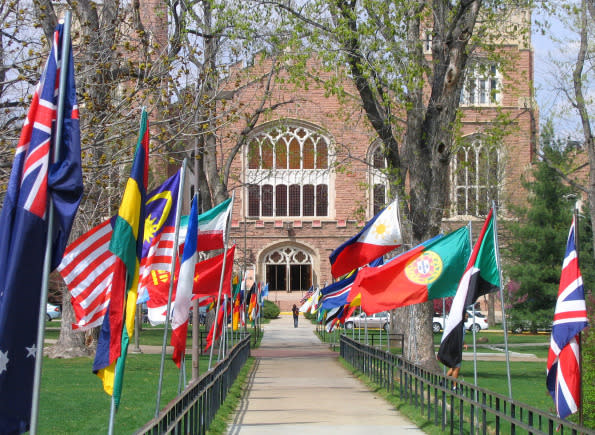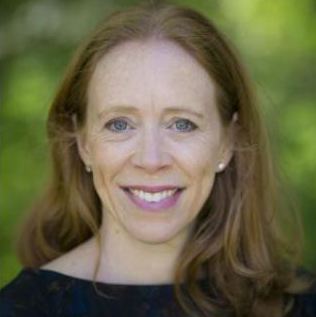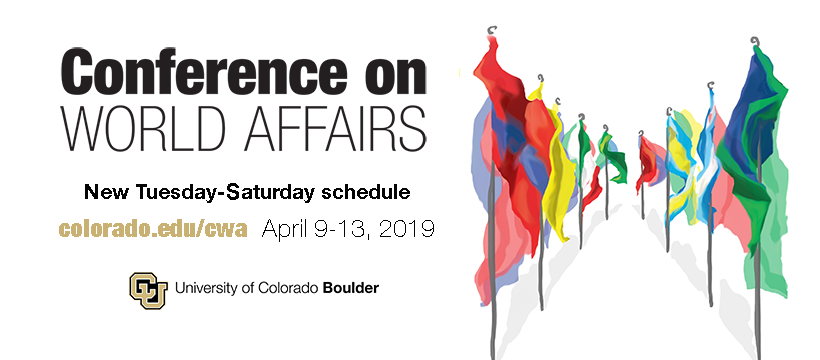
Conference on World Affairs
April 2018 / 2019
The annual Conference on World Affairs at the University of Colorado brings in thinkers and doers from around the world for panels on many topics. Girls’ and women’s empowerment is one of the general themes each year. African Girls Can shares the insights of two of the speakers from the last in-person conferences (it was virtual in 2020).

Maggie Duncan Simbeye
Executive Director and Co-Founder, Dare Women’s Foundation (DARE), Arusha, Tanzania
Maggie is also one of the very first female owners and driver tour guides of a Tanzanian safari company! Maggie’s Tours specializes in sharing African women’s stories and enabling guests to go home with memories of the people, in addition to the amazing wildlife.
“Flex your voice!”
What is good for women and girls is also fantastic for men and boys. Relationships improve and violence goes down when there is additional income in the family. Without an income, women have no voice…. about many things, conservation, health and hygiene, entrepreneurship.
The enthusiasm of girls does not match the resources that have been given to them. Threats to their well-being come from all directions. DARE is committed to being there despite the many barriers and providing lessons in resilience. It is important to provide girls hands-on leadership opportunities.
With the systems of power in Tanzania, opinions are allowed more for boys than girls. We need to change this and encourage girls to have a point of view and flex their voice. Read the newspaper. Discuss issues. Write.
Advice from Maggie:
- Lead by example.
- Learn from nature.
- Embrace failure and rejection.
- Become bold, but stay humble.
- Empathize with others who have been rejected.

Christina Lowery
CEO and Co-Founder Girl Rising
The mission of Girl Rising is to change the global mindset about how girls are valued through film and compelling storytelling. It works through Program Partners in 11 countries and educators in 125 countries have used its free curriculum.
“How do we spend our time and our treasure?”
Think about gender norms around the world. What is taken as “normal” or “the wallpaper?”
Next, think about the life cycle of a girl to a women, with and without an education. Think about what she will be like later in life…. her mental and physical health and economic wellbeing for her WHOLE life.
What about the boys? It is so important to engage boys in these conversations. Don’t make gender parity a girls’ and women’s issue. It is an issue of equality. It is not our intent to alienate anyone. We need a whole generation of boys who support gender equality.
Data and data driven decisions are important. But, not all statistics represent all stories.
Locals know their community needs best. We should seed and support local, visionary, educational leaders. They may or may not scale, but they will still be a stable presence in the community.
Both boys and girls will do better if there is a different approach to teaching (vs. rote memorization). Put all names in a hat and call on every child, not just the boys. If girls are shy, allow them to write down their questions on cards.
Compulsory education can actually stamp out creativity. Other programs can give agency and “critical consciousness.” This means to recognize inequitable systems around them and to do something about it.
To be an educated and prepared human being, you need:
- Resilience / grit
- Empathy
- Curiosity
- Self-advocacy
- To form your own ideas and opinions
- To be a lifelong learner
Book recommendation: “The Road to Character,” by David Brooks.


